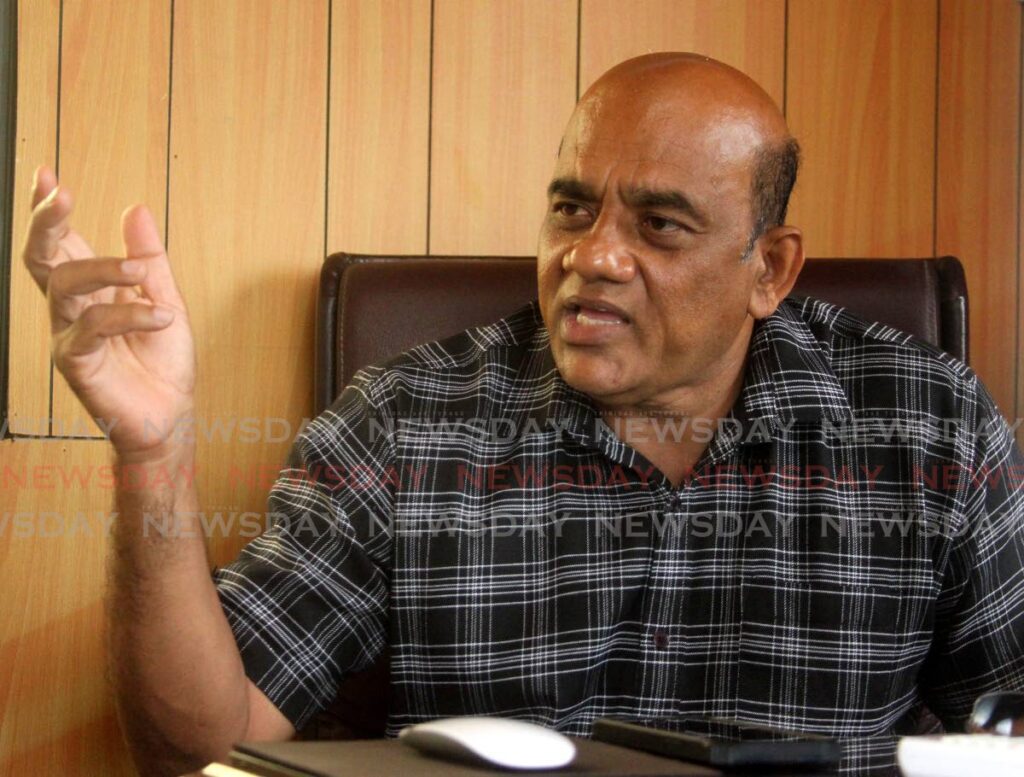Babwah wants restrictions removed on hybrid vehicles

TT Automotive Dealers Association (TTADA) president Visham Babwah is calling for the immediate removal of import taxes on hybrid electric vehicles, saying its removal may be the only financial reprieve the middle and lower class will have as fuel prices as well as other prices sky-rocket worldwide.
He said on Sunday that he was happy the Prime Minister is “finally seeing the light” since during the Conversations with the Prime Minister forum last Tuesday, Dr Rowley spoke of having all public transport vehicles go fully electric. Babwah noted this change would not happen overnight.
“This is something we have been lobbying for, for the past ten years,” Babwah said.
“This is the way the manufacturing sectors are going. It feels like they just got up one morning and when they hear about something they act on that. They are not being proactive.”
“When the Prime Minister says he is going to update the public transport fleet, he has to know how it is going to be done. It cannot be done overnight. There must be a time line.”
Rowley said he has instructed the Minister of Energy to accelerate the programme in searching for and obtaining a new fleet of electric buses. He also said the Ministry of Finance would also make moves to encourage drivers to use electric vehicles.
Babwah said because of the Russian invasion of Ukraine there has been a strain, not only on oil production, fuel and materials for major commodities but on accessing raw materials for building new electric cars. He added that the bottlenecks in production will cause new electric vehicles to increase in cost.
Early in March car makers including Volkswagen, BMW and Porche were struggling to find wire harnesses a vital part of cars, both electric and internal combustion, which neatly bundles up to 5 kilometres of wiring and cables. Most European electric cars depend on Ukraine for its supply of harnesses and as such production had to be paused for many major car makers at the beginning of the month. According to European news sources production for Porche and BMW is expected to resume fully by March 21.
The price of nickel, one of the main raw materials in mobile phones and electrical transport, also leapt from US$24,000 per tonne at the end of February to more than US$48,000 in March. Russia is one of the major producers of nickel.
“The global demand for electric vehicles is very high,” Babwah said.
“And we have exemptions on electric vehicles already. But that only benefits the wealthy because of the types of vehicles available. The people who really need the assistance are the lower and middle class. That is why government should move the permissible age for hybrid and other vehicles back to six years and move the permissible age for electric cars back to four years. That would give a buffer to the lower and middle class.”
Babwah added that with fuel prices going up, so will freight and other costs, making all items more expensive.
Unipet Chief Executive Officer Dexter Riley said as a fixed low margin business the increase in fuel prices was a concern for the company.
“Unipet and the fuel industry currently operates with low fixed margins, therefore any increases in taxes or other costs without a change in margins affects our viability,” Riley said. “The removal of subsidies will increase the price of fuel and by extension the business levy and green fund taxes, which are calculated on the revenue line.”
Riley said increased taxes, bank charges, and cash in transit charges would be problematic, should subsidies be removed.
Although subsidies have been removed on some of the fuel products available in TT, a price for gasoline fixed by government means that it would have to cover any shortfalls. Riley told Newsday that the subsidy for premium and super gasoline, with a price at the pump going at $5.11 and $4.42 respectively are subsidised by 72 cents for premium gasoline and $1.34 cents for super.
In the 2021/2022 budget, Finance Minister Colm Imbert announced a removal of all custom duties, motor vehicle tax and VAT on battery powered electric vehicles with an age limit of two years.
The year before in the 2020/2021 budge he proposed a removal of all tax concessions on the import of private motor cars. All private cars including hybrid electric cars now attract customs duty, motor vehicle tax and VAT.


Comments
"Babwah wants restrictions removed on hybrid vehicles"